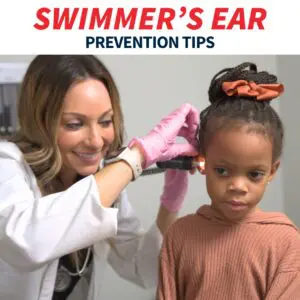Knowing Is Half the Battle: A Comprehensive Guide to Health Screenings
We’ve all been there — you get a calendar alert reminding you of your annual wellness checkup that afternoon. But after looking at your packed schedule, you realize that today is just not the day for a trip to the doctor’s office. Before you know it, you’ve rescheduled three times in 2 months. Life gets busy — there’s no doubt about that. However, routine health screenings are essential for early detection and prevention of diseases.
Health screening recommendations vary based on age and gender, which can make it confusing at times to know when to get screened for certain conditions. This helpful guide will identify important health screenings for both men and women in different age brackets, giving you the knowledge you need to stay on top of your health at every stage of life.
Your 20s
For women:
- Pap smear: Start screening for cervical cancer with a pap smear test at age 21 and continue getting screened every three years unless otherwise directed by your provider.
For men:
- Testicular self-exam: Conduct a self-exam once a month to check for lumps or changes.
For both:
- Annual wellness checkup: Comprehensive annual checkup to screen for vitals including blood pressure, cholesterol levels and weight.
- Sexual health screening: Regular screenings for sexually transmitted infections if sexually active.
- Mental health screening: Discuss any mental health concerns or new symptoms with your healthcare provider. These screenings can help identify conditions such as anxiety and depression early, which allows for intervention and treatment as recommended by a mental health professional.
- Skin screening: Get screened annually for new growths or skin changes, especially if you have a history of skin issues.
Your 30s
For women:
- Pap smear and HPV screening: Screen for cervical cancer and HPV at least every five years.
For men:
- Testicular cancer screening: It is recommended to get a testicular cancer screening during your annual wellness checkup unless otherwise directed by your provider.
For both:
- Annual wellness checkup: Continue with yearly wellness checkups.
- Cholesterol test: A cholesterol test is recommended every four to six years. If you have an increased risk of developing high cholesterol such as a family history of the condition, your provider may recommend getting cholesterol checks more frequently.
- Blood pressure screening: Recommended at least once a year during your annual wellness checkup. However, more frequent blood pressure screenings may be recommended for those with elevated readings.
- Blood sugar screening: Testing for diabetes typically starts at age 35 and is recommended every two to five years. If you have a family history of diabetes or are at an increased risk of developing the condition, testing may be conducted more frequently based on your provider’s recommendation.
- Eye exam: Even if you have normal vision, it is still recommended to get one every two years. However, if you have vision problems or a family history of eye disease, it is recommended to get an eye exam annually to screen for any changes in vision.
Your 40s
For women:
- Mammograms: Start scheduling annual mammograms at age 40, or earlier if you have a family history of breast cancer.
- Bone density screening: This screening is recommended if you have risk factors for osteoporosis, such as a family history or low body weight.
For men:
- Testicular cancer screening: Continue annual testicular cancer screenings with your provider.
For both:
- Annual wellness checkup: Continue with yearly wellness checkups.
- Colorectal cancer screening: It is recommended to start screening for colorectal cancer at age 45. Screening options include a colonoscopy every 10 years or other tests as recommended by your provider.
- Skin screening: Annual skin checks become more important as you age, especially if you have a history of significant sun exposure or have a family history of skin cancer.
- Eye exam: Annual exams to monitor for vision changes and any potential eye diseases.
Your 50s
For women:
- Mammograms: Continue annual screenings for breast cancer.
For men:
- Prostate cancer screening: Men who are at average risk of developing prostate cancer are recommended to get screened at age 50 and continue screening every two years. Those who are at higher risk of developing prostate cancer are recommended to get screened annually.
For both:
- Annual wellness checkup: Continue with yearly wellness checkups.
- Colorectal cancer screening: Continue every 10 years, or as recommended by your provider.
- Blood sugar screening: Continue with routine diabetes screenings.
- Skin cancer screening: Continue with annual skin checks.
- Hearing screening: This screening is recommended every three years to monitor for any early signs of hearing loss.
Your 60s and beyond
For women:
- Mammograms: Continue with annual breast cancer screenings unless otherwise directed by your provider.
- Bone density screening: Proceed with regular screenings as recommended by your provider.
For men:
- Prostate cancer screening: Continue getting screened annually if you are at higher risk of developing prostate cancer.
- Abdominal aortic aneurysm screening: For men who have a history of smoking, a one-time screening is recommended at age 65.
For both:
- Annual wellness checkup: Continue with yearly wellness checkups, focusing on chronic disease management and comprehensive health monitoring.
- Dementia and Alzheimer’s screening: It is recommended for men and women over 60 to get screened annually for dementia and Alzheimer’s disease.
- Eye exam: It is recommended to screen annually for vision changes and to check for any developing eye diseases like cataracts, glaucoma and macular degeneration.
- Bone density screening: Regular bone density screenings as recommended by your healthcare provider.
- Hearing screening: Continue with routine hearing assessments every three years.
Can you go to an urgent care for a wellness exam?
Yes! At Midwest Express Clinic you can get routine health check-ups to maintain your overall wellness. Our experienced professionals can also help you navigate your preventative healthcare needs. We have 50+ locations open seven days a week to patients of all ages. Remember, screen early and often! Find urgent care near you at midwestexpressclinic.com/locations.




